God Has No End
To my patient readers, I would like to bring a few more reflections from my book Sociologia do Universo [The Sociology of the Universe]. In any debate about God, it is necessary to consider that He is not a mere product of Faith. Therefore, the reasoning regarding this issue is similar to the one I expressed in the still controversial theory about the extraterrestrial life. At the time of the 1st Ufology World Forum, which was held in the World Parliament of Ecumenical Fraternity, the LGW’s ParlaMundi, in Brasília (Brazil), between December 7 and 14, 1997, I said: The world has been discussing for a long time the existence of the so-called UFOs. Concerning this, the essential point is not whether to believe in them or not, but to know if these phenomena are true or not.
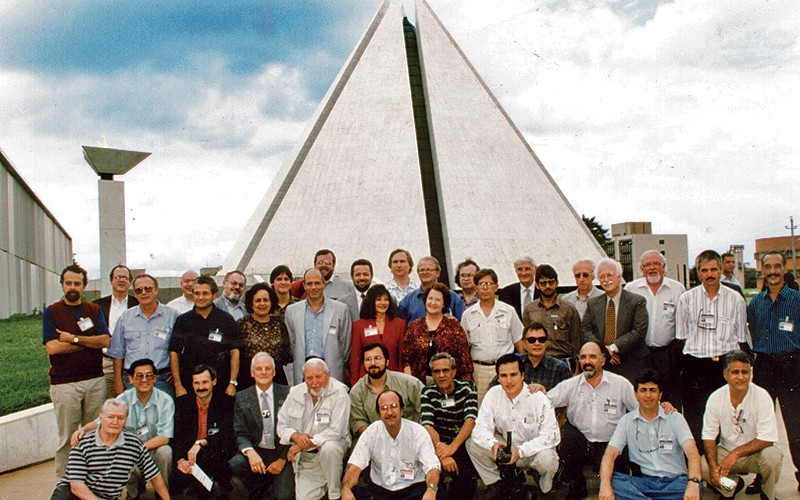
Participants of the 1st Ufology World Forum
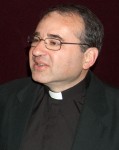
Father José Gabriel Funes
As a matter of fact, with regard to life in outer space, the declaration made some years ago by the then director of the Vatican Astronomical Observatory is timely. In an interview with the L’Osservatore Romano newspaper, Father José Gabriel Funes said: “We cannot put limits on God’s freedom to create. . . . How can we exclude [the possibility] that life may have also developed in another place?”
You cannot put an end to God.
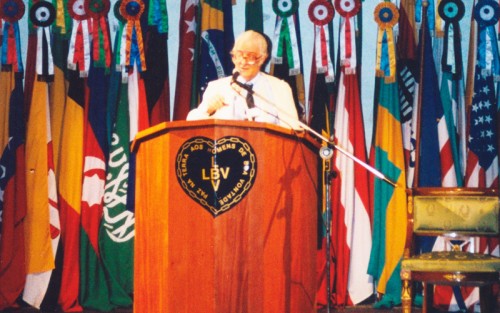
Ronaldo Rogério de Freitas Mourão
Very much to the point, during the LGW’s 1st Spirit and Science World Forum, held on October 18, 2000, also in the ParlaMundi, Professor Ronaldo Rogério de Freitas Mourão (1935-2014), an internationally known Brazilian astronomer and physicist, at one point in his speech when talking about the expanded view we are now beginning to have of the cosmos, clarified that, “It was limited because human beings have a need to limit everything, to put a beginning and an end to things. Our mind is wired like that. We imagine human beings as mortal creatures. We don’t believe that life is immortal, and I have no doubt that life is immortal. We, individuals, are mortal, but life permanently perpetuates itself in the universe. It is there, totally spread out; and it’s important to analyze this.”
The geocentric, or rather egocentric, system

We need to be impartial and modest when we analyze subjects that are not completely deciphered. In As Profecias sem Mistério [The Prophecies Without Mystery], I argued that if someone guarantees that something is impossible given a particular scientific opinion, anyone can ask them which science they are referring to: that of the past, present, or future? Yes, because the propositions coming from respectable and extremely useful science, without which we cannot live, evolve and are likely to do so constantly. Therefore, it is sensible to reflect on the considerations of the late Brazilian physicist César Lattes (1924-2005), one of the discoverers of the pion: “Science should be very careful when it says that many things do not exist. . . .”
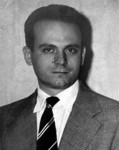
César Lattes
Everything evolves. So many things that yesterday were immovable truths in the field of religion and science no longer are. In 1987, in the Folha de S.Paulo newspaper, I highlighted an example: Because of a belief defended at all costs by old concepts, the Earth was considered the center of the universe. In fact, the geocentric system symbolizes nothing more than an egocentric method—that of human beings expecting the universe to revolve around their ego.
Science, love, and truth
The question lies in trying to find out where the truth is, and not us, subjugated by prejudice, concluding irrevocably on which side it is situated.
For decades I have been preaching that Science (Brain, Mind), enlightened by Love (Religion, Fraternal Heart), elevates human beings to conquer Truth.
Preventing glaucoma
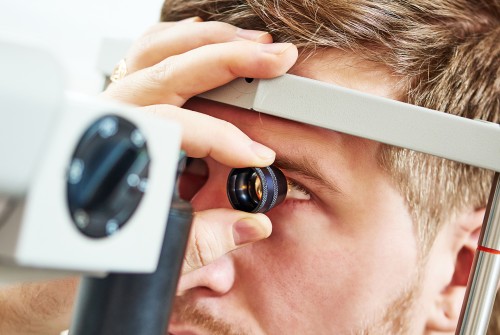
According to the World Health Organization, glaucoma is considered the leading cause of irreversible blindness, affecting 65 million people worldwide. For the World Glaucoma Association, this is the major cause of total sight loss in 4.5 million people.
In Brazil there are approximately 1 million people with this disease, and a further 900,000 people do not know they have it.
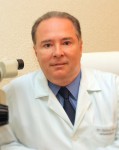
Leôncio Queiroz Neto
In an interview with the Vida Plena [Full Life] program on Good Will TV, ophthalmologist Leôncio Queiroz Neto explained why people are ill-informed: “Glaucoma doesn’t present any symptoms. Generally speaking, those who have it feel their sight to be a bit blurry and have a slight frontal headache at the end of the day, but these are common symptoms that can be confused with other problems. But they’re losing their sight without knowing it.” He recommends an annual preventive eye check-up. “That’s when we often have the chance of evaluating whether a person falls within the risk group for developing glaucoma or not.”

The comments do not represent the views of this site and are the sole responsibility of their authors. It denied the inclusion of inappropriate materials that violate the moral, good customs, and/or the rights of others. Learn more at Frequently asked questions.